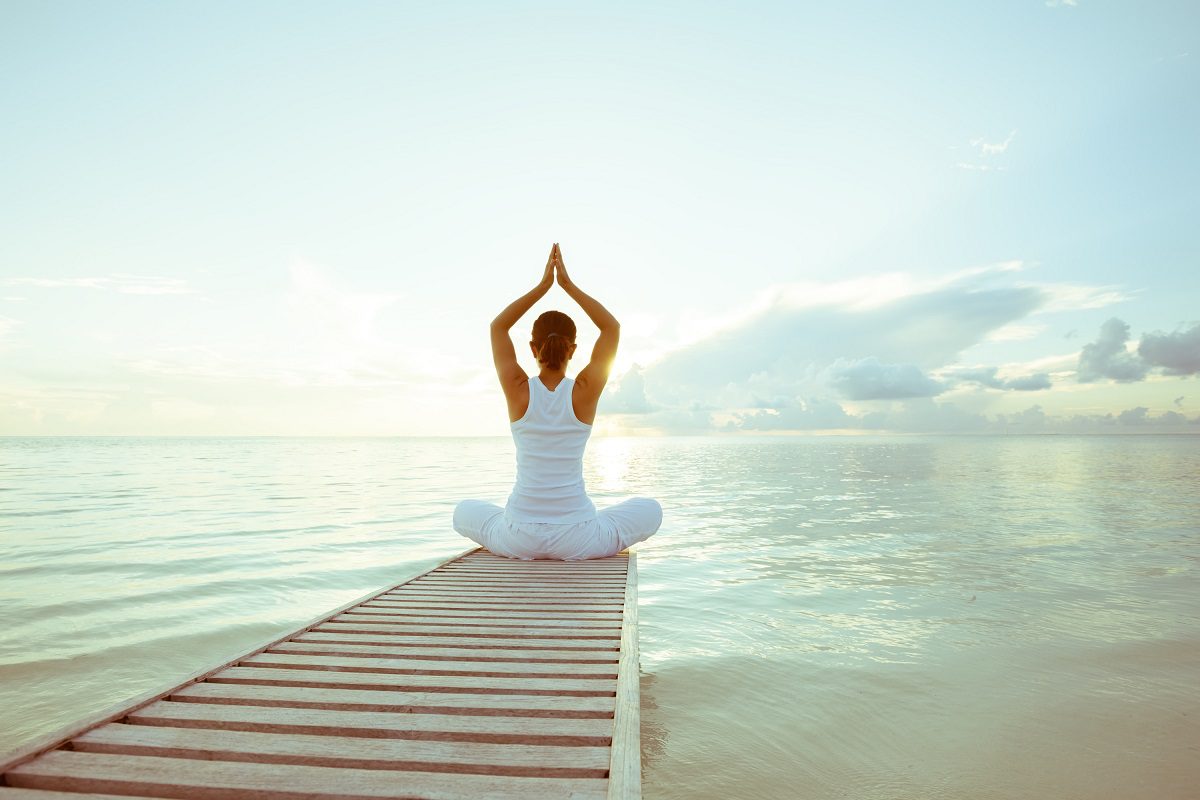Difference and Benefits of Hatha Yoga.
Differences and benefits of Hatha yoga. There are numerous types of yoga, each with different characteristics and targeting different areas of wellness. Hatha yoga refers to the practice of physical yoga postures.
The term Hatha is derived from ‘sun’ ha and ‘moon’ tha, i.e. the yoga of balance. This means that Hatha yoga balances the body and the mind, and the physical movements.
It can also be referred to as the yoga of activity as the term Hatha can be translated in two ways ‘forceful’ and ‘willful’. In this sense, Hatha yoga is created through willful physical force.
In summary, you can get a lot of benefits of yoga; Hatha yoga is the willful and active practice that is used to achieve harmony and balance in mind, body, and spirit.
Hatha yoga is a physical practice that requires you to make various postures (asana), but it can also involve breathing techniques (pranayama), creating hand gestures (mudras), energy seals (bandha), internal cleansing (shatkarma) and chanting mantras.
You might have gone to various yoga classes, and most of them have these characteristics. The vinyasa, ashtanga, lyengar, bikram, kripalu, viniyoga, hidden language, power yoga, and some other yoga classes are all variations of Hatha yoga, but they do not entail the esoteric aspect of spirituality as classic Hatha yoga.
How Hatha yoga is different from others.
 Although most of these yoga classes are quite similar, the most definitive aspect of Hatha yoga is that you hold your body in the same position for a long period of time while breathing through the poses.
Although most of these yoga classes are quite similar, the most definitive aspect of Hatha yoga is that you hold your body in the same position for a long period of time while breathing through the poses.
Some yoga classes go at a faster pace, requiring you to flow through your breath, but in Hatha yoga, breathing and physical postures are quite crucial.
Where Hatha yoga come from.
While yoga in general is an old practice that is basically untraceable, Hatha yoga is a relatively young practice. Hatha yoga has been dated to have begun in the 11th century a.d. According to different yogis, Hatha yoga was originally developed by enlightened teachers whose aim was to help people survive during the spiritual dark ages (Age of Kali).
Yoga was introduced to the western world in the 1800s by an Indian yogi famous for his lecture on yoga in Chicago. Swami Vivekananda made it possible for the western world to appreciate Hatha yoga because it enabled renowned yogis to achieve amazing levels of control over their bodies and metabolism, flexibility, and fitness.
As a result, numerous variations of Hatha yoga continue to pop up, contrary to the beliefs of strict Hatha yoga teachers. You may have noticed power yoga, a variation of Hatha yoga which makes the movements and postures so fast that they can be compared to aerobics.
This practice of yoga, although beneficial to some, goes against teachings of accomplished yogis.
The benefits of Hatha yoga.
Stress Management.
In today’s busy society, more people become stressed and overwhelmed by their day-to-day activities. However, Hatha yoga can be used to alleviate stress.
 According to a study from the University of Waterloo, 25 minutes of Hatha yoga (willful movement and meditation) are very helpful in boosting energy levels. The results also showed that Hatha yoga significantly enhances POMS mood scores.
According to a study from the University of Waterloo, 25 minutes of Hatha yoga (willful movement and meditation) are very helpful in boosting energy levels. The results also showed that Hatha yoga significantly enhances POMS mood scores.
The breathing exercises that are part of Hatha yoga bring the meditative aspect that promotes stress relief. Numerous studies have shown that a few minutes of controlled breathing can help with alleviating stress, and Hatha yoga makes this possible.
Hatha yoga improves injuries and disabilities.
According to a study done on a modified Hatha yoga protocol designed for EEG and ERP patients aged 18 to 55 years old;
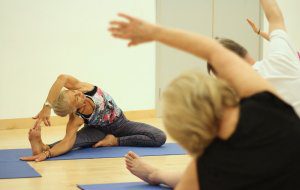
Hatha yoga increases alpha, theta, and delta activities while reducing beta activities.
These changes in brain activity support the psychophysiological benefits of Hatha yoga as a means of injury rehabilitation.
This means that Hatha yoga can be used to help people with physical disabilities to ensure that they experience less pain and improve their condition.
Hatha yoga improves fitness, strength, and flexibility.
Hatha yoga is the more physical aspect of yoga that encompasses aerobic conditioning, isometric and isotonic muscle toning, meditation, stretching poses, concentration, and breath control.
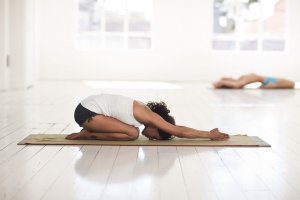 Hatha yoga encourages you to consciously relax your muscles and generate tension in your muscles.
Hatha yoga encourages you to consciously relax your muscles and generate tension in your muscles.
When your muscles are accustomed to remain functional throughout a full range of muscle movement, you find that you can go into a certain posture, remain in that posture, and come out of it without any struggle.
As a beginner in Hatha yoga, some positions can be difficult, but with consistency, you become a lot more flexible.
Because you are constantly lifting your own weight as you hold your body in these positions, your strength increases. As your muscles become toned and your nerves become accustomed to the relaxation and contraction of the muscles, you will start advancing to other stages of complexity in Hatha yoga (1).
Hatha yoga improves brain function.
According to a study from the University of Illinois, eight weeks of Hatha yoga classes can significantly enhance reaction times and accuracy in relation to cognitive function.
This is due to the focus and energy that is required to perform Hatha yoga postures.
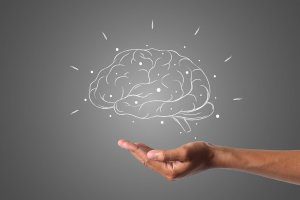
In addition, the controlled breathing and conscious relaxation and contraction of muscles improves your ability to improve your working memory capacity, which helps you to continually update and manipulate information.
With consistent Hatha yoga practice, you will be able to perform tasks quickly and accurately without getting distracted easily.
Hatha yoga improves the quality of sleep.
Hatha yoga involves physical activity, relaxation, strengthening, stretching, and balancing. Along with the breathing exercises and meditation that comes with the practice, you can improve the quality of your sleep and eradicate sleep disturbance.
This is brought about by the promotion of relaxation, reduced physiologic activation and direct effect on neurologic sleep-regulating mechanisms. By practicing Hatha yoga, you can significantly improve the quality of your sleep.
Hatha yoga routines.
Hatha yoga routines involve different series’ of physical postures and breathing techniques that can be done for twenty minutes to two hours. The key to achieving your goal through Hatha yoga is by remaining disciplined through consistency.
Hatha yoga consists of twisted movements, backwards bends, and forward bends. Every posture must be balanced, if you bend backwards, you must bend forward, if you bend to the left, you must bend to the right.
The breathing techniques are also crucial. You should always take deep breaths, i.e. when you inhale, your stomach must expand outwards, and when you exhale, your stomach must contract inwards.
Another important factor to remember about Hatha yoga, or any type of yoga for that matter, is that yoga is not a competitive sport. While you might feel the need to outdo your partner, it is essential for you to listen to your body. Avoid overexerting yourself and criticizing your progress.
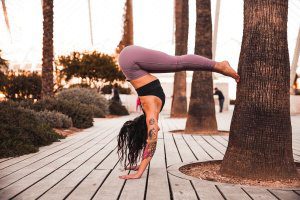 Hatha yoga enhances self-awareness and self-appreciation.
Hatha yoga enhances self-awareness and self-appreciation.
Acknowledge your limits and enjoy the process, as your body adjusts and you will be able to put yourself in seemingly difficult postures.
It is always important to maintain good form and posture. As such, it is important to do Hatha yoga on a flat surface where you have enough space to comfortably move around.
If you are a new yoga participant, it is always advisable to get instructions from a professional yoga teacher.
REFERENCES:
- Ajjimaporn, A., Rachiwong, S., Siripornpanich, V., (2018). “Effects of 8 weeks of modified hatha yoga training on resting-state brain activity and the p300 ERP in patients with physical disability-related stress.” Journal Of Physical Therapy Science.
- Goguen-hughes,L., (2011) “Yoga’s Twisted History.”
- Borg-Olivier,S., Machliss,B., “Hatha Yoga Stretching and Muscle Strengthening Exercise.”
- https://www.yogabasics.com/learn/hatha-yoga-the-physical-path/
- https://www.sciencedaily.com/releases/2014/08/140818113215.htm
- https://www.encyclopedia.com/medicine/divisions-diagnostics-and-procedures/medicine/hatha-yoga
